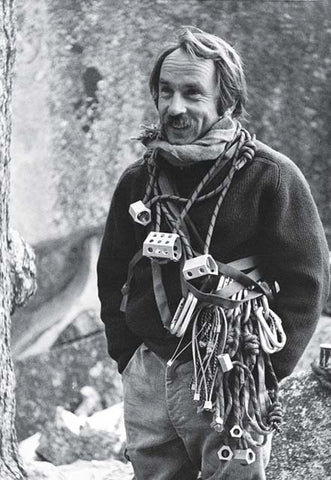
Protein bars are a convenient and tasty snack favored by all types of athletes, from weightlifters to trail runners. Nutrition is key to your performance and can help boost endurance, in any type of exercise.
“Protein bar” is a broad descriptor — bars deemed “protein bars” don’t all have the same amount of protein, and they certainly vary in quality and nutritional value. A protein bar may have 5 grams of protein, or as much as 20 grams. One is not better than the other — protein is an essential nutrient, but sometimes less is more. Depending on what stage you’re at in your exercise routine (i.e. before, during, and after) and what type of exercise you’re doing, protein bars can be a great snack. You can check out these posts on some of the benefits of protein bars and the best energy bars for cycling.
Before a Run
Protein is not a priority before a run. In fact, you want to limit your intake of protein to avoid stomach upset. Definitely eat carbs, either right before or a couple hours before, or you might not last for the duration of the run. Eating carbs increases your glycogen stores, which your body uses as its main source of energy when you’re exercising. If you don’t have enough glycogen, especially on a longer run, you may experience “hitting the wall.”
The amount of carbs you should eat before a run depends on the duration and intensity of your run. Protein bars with a high ratio of carbs to protein (4:1) are best. Nutritionist Amy Shapiro advised Outside Magazine on the amount of carbs you should eat 30 minutes to an hour before exercise, based on the intensity:
Run of an hour or less: 15 grams of carbs, e.g. a banana
Run of an hour or more: 30 grams of carbs, e.g. vegan energy bars
Marathon: 50 to 75 grams of carbs (and carbo-load the day/week before)
During a Run
This only really applies to long distance runners — if you’re just going on a quick jog before work, it really isn’t necessary to eat a snack mid-run. Even if you ate before a long run, it’s inevitable that at some point you’ll have to refuel. For runs longer than 75 minutes, Shapiro recommends eating 30 to 60 grams of carbs for every additional hour, in addition to drinking water. Your body will have burned through it’s glycogen stores by this point, so eating carbs will allow your body to produce (and store) more. Protein bars are one of the best snacks for running because they’re extremely portable, yet pack a ton of essential nutrients. Again, look for bars that have a higher ratio of carbs to protein, as they will provide you with more energy.
After a Run
This is where protein comes in — during the recovery period after a run or any type of intense workout, protein helps rebuild your muscles. Registered dietitian Amy Goodson told Runner’s World that you should aim to eat 20 to 25 grams of protein within 30 minutes to one hour after a run. This boost of protein will help repair your muscles. In this stage, you’d want to eat a protein bar with a higher protein content, preferrably, plant based energy bars, or a protein-packed meal. Protein bars are a good, portable option to have post-run if you don’t have time to sit down and eat, or don’t feel like eating a full meal.
What Types of Protein Bars are Good?
As mentioned before, protein bars can vary in quality and nutritional value. There are some protein bars out there that you should avoid at all costs, as they will do more harm than good. When you’re looking for protein bars at the grocery store, be sure to look at the ingredients list first. Many brands make wide claims about their bars that can sound convincing at first — but before settling for a brand, check the ingredients to make sure you actually know what you’re putting in your body and can feel good about it. If you have to turn over the wrapper to continue reading the ingredients list, and you don’t know what half the stuff on there is, that’s a good indicator that the bar is not for you.
Some protein bars, although marketed as “health foods,” aren’t much better than candy bars. Ingredients to avoid include high fructose corn syrup, and any type of added sweetener, including brown rice syrup and agave. Naturally occurring sugars, like those found in fruit and grains, are fine, but added sugar won’t do you any favors.
Bars made with whole foods (i.e. unprocessed and unrefined, or minimally processed) are your best bet. Whole foods you might find in a protein bar are oats, nuts or nut butter, seeds, and dried fruit. Not only can you feel more confident about what you’re putting in your body (because you actually know what it is), but whole foods have more nutritional value and vitamins than over processed ingredients. They also break down more slowly in your body. Carbs that come from oats, nuts, seeds, and fruit, as opposed to carbs from refined sugar, break down slowly. So, they’ll keep you fueled for longer.
In conclusion, YES! Protein bars are good for runners! Nutrition is an essential part of any type of exercise — you’ll need to fuel up before and after workouts, and even during, if you’re doing long distance running. Eating clean food will help you become the best athlete you can be, and make you feel better in the long run.
However, they’re only good for you if they’re made with good ingredients. You can still have the convenience of a protein bar while making sure you’re putting the best quality food in your body — you just have to know where to find them. Tahoe Trail Bars are vegan, gluten-free, and non-GMO, and are made with nutritious ingredients. Whatever your favorite activity is, Tahoe is always here to provide you with a source of wholesome energy when you’re on the go.
Featured image credit: Photo by Tara Glaser on Unsplash




